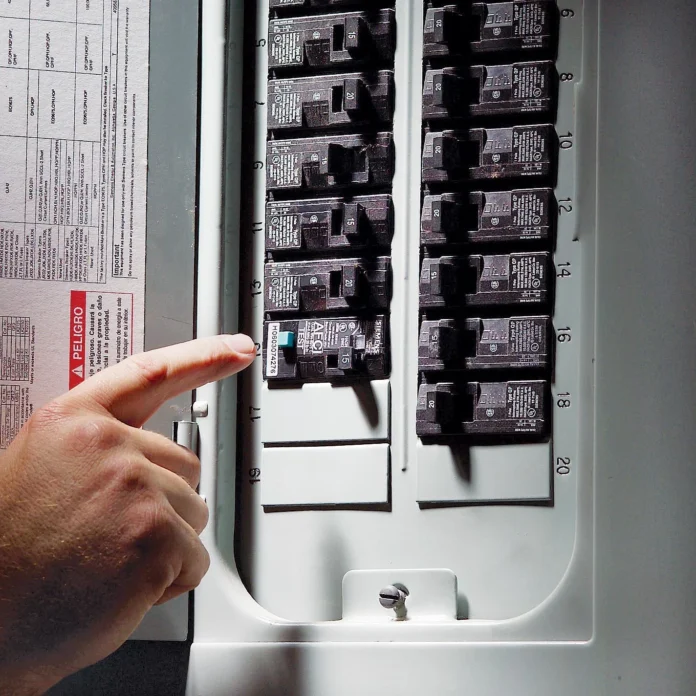Welcome to our blog! Today, we’re diving into the world of residential circuit breakers – those unsung heroes that keep our homes safe and powered up. Whether you’re a homeowner looking to upgrade your electrical system or just curious about how these essential devices work, you’ve come to the right place.
In this article, we’ll explore the different types of residential circuit breakers available on the market and help you understand which one is best suited for your home’s needs. We’ll also share some valuable maintenance and safety tips to ensure your circuit breakers continue to function efficiently and protect your electrical system.
So, let’s get started on this electrifying journey as we shed light on all things related to installing residential circuit breakers!
Types of Residential Circuit Breakers
When it comes to residential circuit breakers, there are a few different types to choose from. One common type is the standard circuit breaker, also known as a single-pole breaker. These are typically used for lighting fixtures and general household outlets.
For larger appliances like refrigerators or air conditioners, you might need a double-pole breaker. These provide higher voltage capacity and can handle heavier electrical loads.
If you have sensitive electronic devices in your home, such as computers or televisions, a ground fault circuit interrupter (GFCI) breaker is essential. This type of breaker monitors the flow of electricity and quickly shuts off power if it detects any irregularities that could cause electric shock.
Another option to consider is an arc fault circuit interrupter (AFCI) breaker. AFCIs are designed to detect dangerous arcing faults caused by damaged wiring or faulty connections. By quickly cutting off power when these hazards occur, AFCIs help prevent electrical fires in your home.
In addition to these main types of residential circuit breakers, there are also specialized breakers available for specific applications. For example, combination arc fault/ground fault circuit interrupter (CAFI/GFCI) breakers offer both arc fault protection and ground fault protection in one device.
It’s important to note that selecting the right type of residential circuit breaker depends on factors such as the size of your electrical system and the specific needs of your home. Consulting with an experienced electrician can help ensure you make the best choice for optimal safety and performance.
Maintenance and Safety Tips for Residential Circuit Breakers
Regular maintenance and proper safety precautions are essential when it comes to residential circuit breakers. Here are some tips to ensure the smooth functioning and safety of your circuit breakers.
First, always conduct a visual inspection of your circuit breaker panel. Look for any signs of damage or loose connections. If you notice any issues, contact a licensed electrician immediately.
Next, make sure to test your circuit breakers periodically. This can be done by turning off the power to a specific circuit and then attempting to use it. If the breaker trips or fails to reset, it may need replacement or repair.
Additionally, keep the area around your circuit breaker panel clear and free from clutter. Avoid storing flammable materials nearby as they can pose a fire hazard.
Furthermore, never overload your circuits by plugging in too many devices at once. This can lead to overheating and potential electrical fires.
If you ever experience frequent tripping of circuit breakers or notice burning smells coming from your electrical panel, do not attempt repairs yourself – call a professional electrician immediately!
By following these maintenance tips and prioritizing safety measures, you can ensure that your residential circuit breakers operate effectively while keeping you and your home safe from electrical hazards.
Conclusion
Installing residential circuit breakers is an essential part of maintaining a safe and efficient electrical system in your home. By understanding the different types of circuit breakers available, as well as following proper maintenance and safety tips, you can ensure that your electrical system operates smoothly for years to come.
When it comes to choosing the right type of residential circuit breaker for your needs, consider factors such as the size of your electrical load, the number of circuits you require, and any specific requirements or regulations in your area. Whether you opt for standard thermal-magnetic breakers or more advanced options like AFCI or GFCI breakers, it’s important to consult with a qualified electrician who can guide you through the decision-making process.
Once installed, regular maintenance is key to keeping your residential circuit breakers in optimal condition. Regularly inspecting them for signs of wear or damage and promptly addressing any issues will help prevent potential hazards such as overheating or short circuits. Additionally, practicing good safety habits—such as not overloading circuits and using caution when working near electrical panels—can further reduce the risk of accidents.
If ever faced with a tripped breaker or other electrical problem that you are unsure how to handle safely, always reach out to a licensed professional. Attempting DIY repairs without adequate knowledge can lead to serious injuries or even fire hazards.

